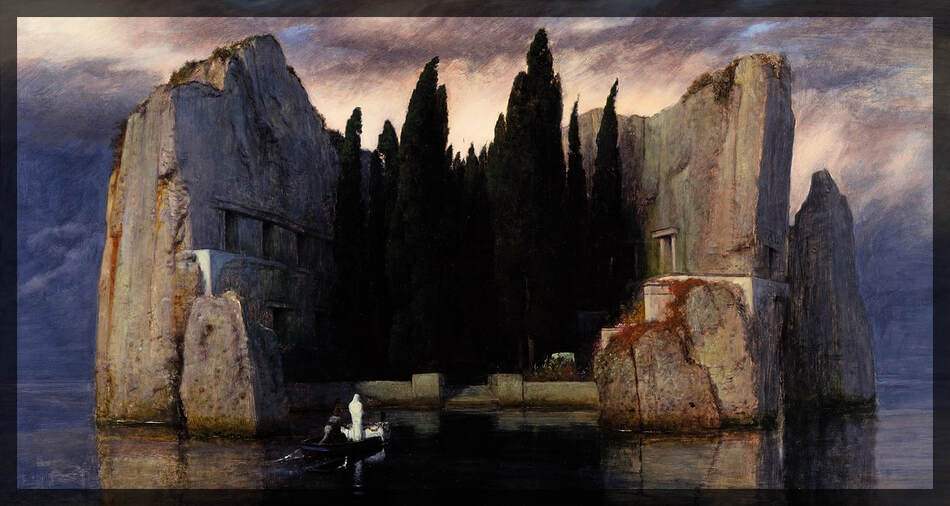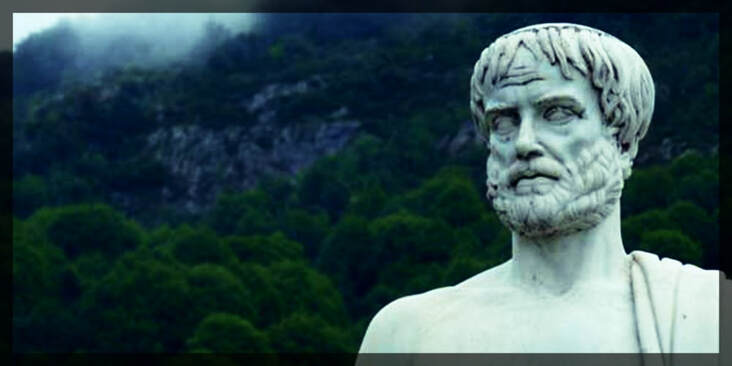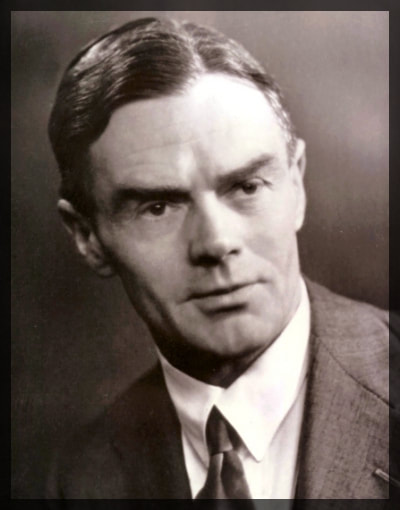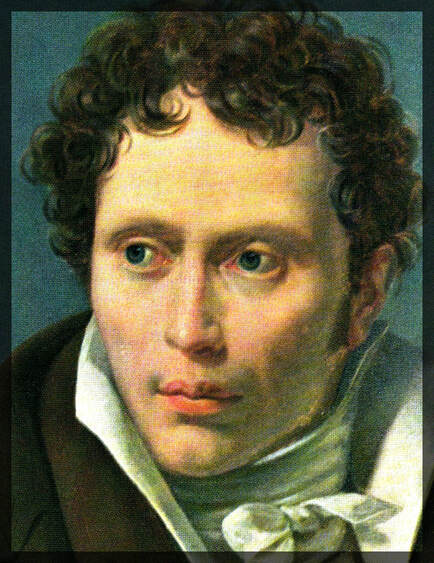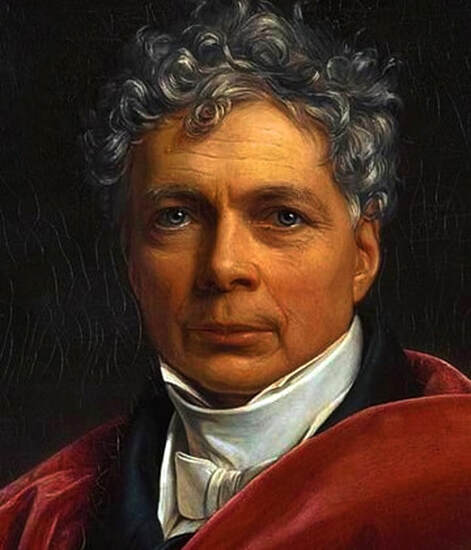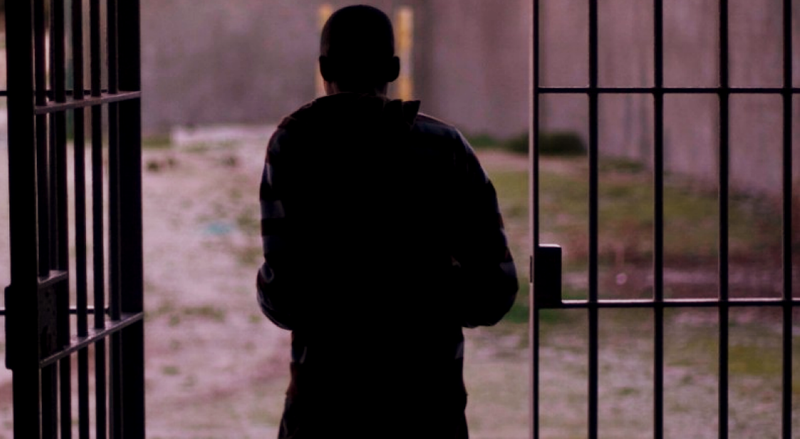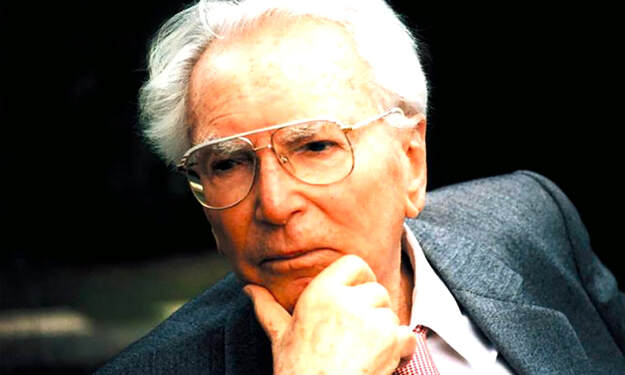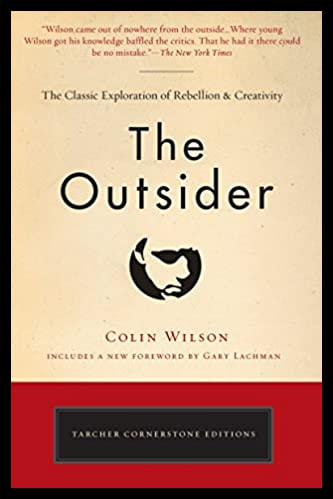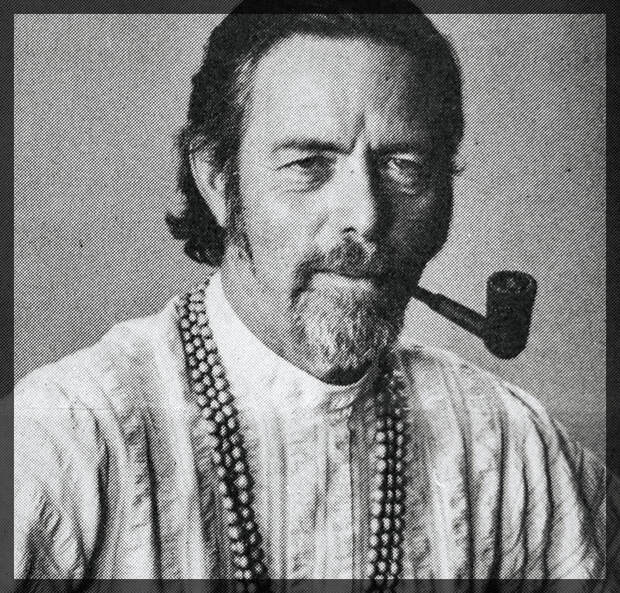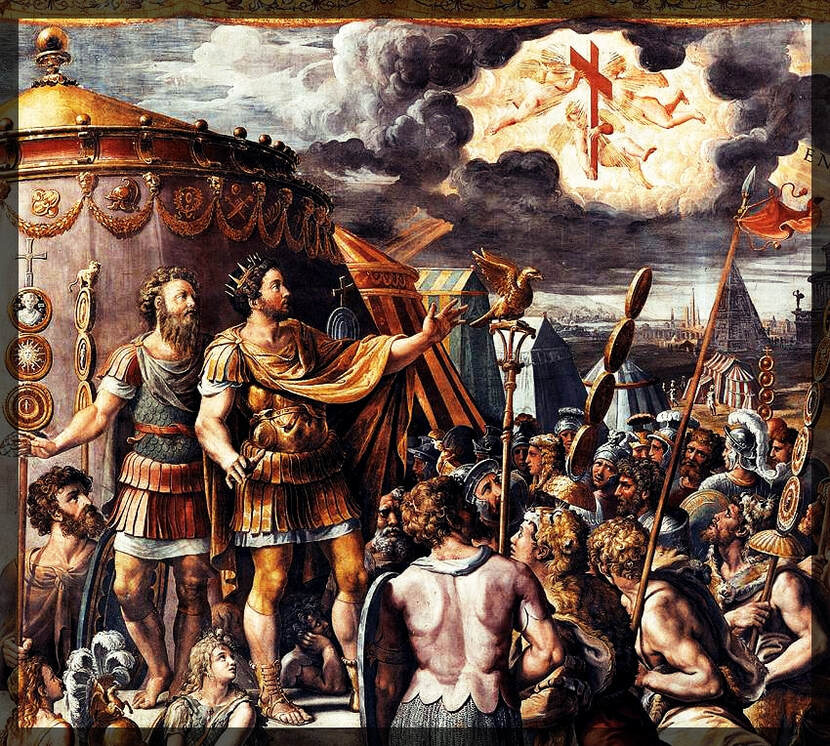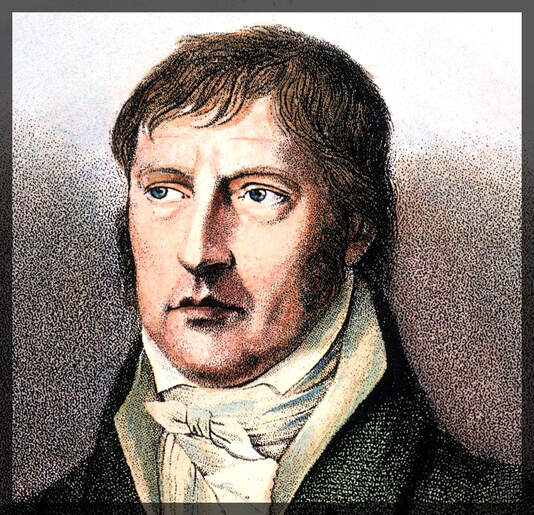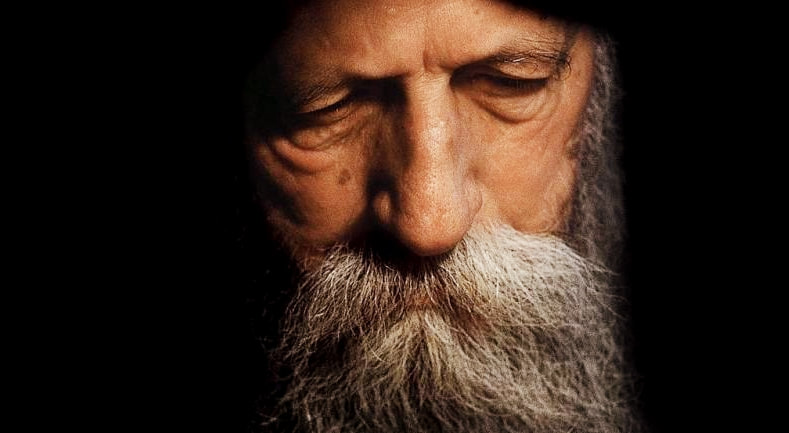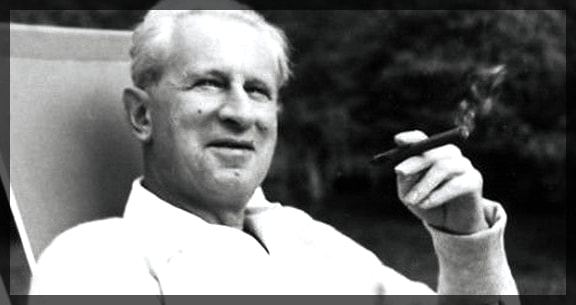INDIVIDUATION
^
& the Will-to-Meaning
.
by Michael Tsarion
|
|
...all evolution can be described as the process of differentiation of the part from the whole, the individual from the mass, with the parts then relating to each other on a higher level - Rollo May
|
Although Carl Jung and Otto Rank started their illustrious careers as Freudians, they were never as committed as their great mentor to the theory concerning the primacy of the sex drive. Although sexuality relies on libido or energy, energy must be thought of as the essence of more than just animalistic drives and sexual instincts. Energy is foundational and all-pervasive. No aspect of consciousness can be what it is without it.
Given this fact, questions arise as to what libido is, in itself. If all growth relies on it, what can be said about its apparent purpose? Even if, like Schopenhauer, we refer to it as "will," we are still left to sensibly describe it. Apparently we know more about Black Holes than we do about our own life-force.
Freud made a great effort to show the effects of the will, but something about his definition seems lacking. After all, his view of life was reductive. As far as he was concerned, human experience is merely a matter of matter.
It's all about the stuff of the objective world knocking up against our all too physical senses, nerves and neurons. Mind need not apply. There's no such thing as mind. Matter affects matter and that is all we need to know about and study.
Given this fact, questions arise as to what libido is, in itself. If all growth relies on it, what can be said about its apparent purpose? Even if, like Schopenhauer, we refer to it as "will," we are still left to sensibly describe it. Apparently we know more about Black Holes than we do about our own life-force.
Freud made a great effort to show the effects of the will, but something about his definition seems lacking. After all, his view of life was reductive. As far as he was concerned, human experience is merely a matter of matter.
It's all about the stuff of the objective world knocking up against our all too physical senses, nerves and neurons. Mind need not apply. There's no such thing as mind. Matter affects matter and that is all we need to know about and study.
|
|
…no behaviorist has observed anything that he can call consciousness, sensation, imagery, perception or will - J. B. Watson
|
|
The notion of mind allegedly comes about due to the physical complexity of cognitive and neurological systems. Our brains cannot function efficiently with open uninhibited access to all this complexity, which needs to be condensed and simplified. The governing capacities of the brain - that consolidate and delimit the brain's own content - give rise to the illusion we call "mind." It's less a case of reality than of language, description and convenience, say the Materialists.
The system directs energy into tasks of organization and compression. It's all for the good. It serves our basic need to interact effectively with our environment, so what we need at any given point is quickly and easily located and seized.
Analyzing this process reveals something about the efficiency of mental systems, such as that of the so-called Left-Hemisphere. This in turn impacts our understanding of the nature of energy. Will or energy is predominately a matter of concentration, economy and efficiency. It's a fact worth remembering.
In this sense, will or energy is instrumental to everything we are and come to be. It avails us with all we require to be focused, driven thinkers and actors. It avails the contentment we need as well as the means of survival.
Even though physical necessities come first, energy satisfies other needs. It allows us to become what we desire to be. No professor of psychology or linguistics gets to be what he is without libido. But what does he really understand about this fundamental phenomenon? Although he feels it moving through him, as a "fire in the belly," or burning ambition, does he ever ask about its origin and nature? Of course not. Like the rest of us, he merely takes the reins and rides it toward his destination.
Sometimes the will takes the scenic route and we get to enjoy the journey. That's a nice bonus. At other times it runs us ragged. We can't really complain about our cuts and bruises if we successfully arrive at our desired destination. It's just collateral damage to be written off.
In psychological terms, if all goes well, the will leads us to our ultimate destination, which Jung defined as Individuation.
It's not just an endpoint in any prosaic sense. Something concerning the destination had to exist right at the outset, in potentia. We had to have a vague idea of the map before setting out. It's not a clear enough picture to be sure, and we don't consciously apprehend it. However, the end cannot be reached without some prevoyant grasp of what the great journey entails and what the end will be.
There can be no doubt that most of what exists strives toward a more advanced state of being. We call this "becoming." The blossom of a tree is what it is due to this willless act of becoming. The blossom was in the seed and the new seed is in the blossom. It's the cycle of necessity, and we are part of it.
Aristotle addressed this movement from potentia to actuality, referring to it as entelechy. It describes the connection or path between what was and what is; the past and the present, the seed and the blossom.
In the professor, something of the teenager or infant still exists whether he likes it or not.
All things began in a relatively primitive state. Traces of that originary state remain no matter what later stages bring. The "primitive state" merely describes the foundations upon which all life stands. But it's not a good word. It suggests inferiority and skews our understanding of the true nature of nature.
The system directs energy into tasks of organization and compression. It's all for the good. It serves our basic need to interact effectively with our environment, so what we need at any given point is quickly and easily located and seized.
Analyzing this process reveals something about the efficiency of mental systems, such as that of the so-called Left-Hemisphere. This in turn impacts our understanding of the nature of energy. Will or energy is predominately a matter of concentration, economy and efficiency. It's a fact worth remembering.
In this sense, will or energy is instrumental to everything we are and come to be. It avails us with all we require to be focused, driven thinkers and actors. It avails the contentment we need as well as the means of survival.
Even though physical necessities come first, energy satisfies other needs. It allows us to become what we desire to be. No professor of psychology or linguistics gets to be what he is without libido. But what does he really understand about this fundamental phenomenon? Although he feels it moving through him, as a "fire in the belly," or burning ambition, does he ever ask about its origin and nature? Of course not. Like the rest of us, he merely takes the reins and rides it toward his destination.
Sometimes the will takes the scenic route and we get to enjoy the journey. That's a nice bonus. At other times it runs us ragged. We can't really complain about our cuts and bruises if we successfully arrive at our desired destination. It's just collateral damage to be written off.
In psychological terms, if all goes well, the will leads us to our ultimate destination, which Jung defined as Individuation.
It's not just an endpoint in any prosaic sense. Something concerning the destination had to exist right at the outset, in potentia. We had to have a vague idea of the map before setting out. It's not a clear enough picture to be sure, and we don't consciously apprehend it. However, the end cannot be reached without some prevoyant grasp of what the great journey entails and what the end will be.
There can be no doubt that most of what exists strives toward a more advanced state of being. We call this "becoming." The blossom of a tree is what it is due to this willless act of becoming. The blossom was in the seed and the new seed is in the blossom. It's the cycle of necessity, and we are part of it.
Aristotle addressed this movement from potentia to actuality, referring to it as entelechy. It describes the connection or path between what was and what is; the past and the present, the seed and the blossom.
In the professor, something of the teenager or infant still exists whether he likes it or not.
All things began in a relatively primitive state. Traces of that originary state remain no matter what later stages bring. The "primitive state" merely describes the foundations upon which all life stands. But it's not a good word. It suggests inferiority and skews our understanding of the true nature of nature.
|
|
Greek philosopher Aristotle (330 BC) held that all things grow purposively toward their fullest expression. All things are as he wrote, teleological. They have a specific end encoded within their essences. Each thing's identity isn't fully realized until the end is reached. In the case of an oak tree, for example, the majestic full-grown oak was already implicit within the acorn. The process of maturation is also known as entelechy. Today, Aristotle's theory is better known as Emergence.
|
|
Problematically, what we know about foundational states depends not on evidence as much as projections made from where we presently stand. For example, what we think we know about the ancient past is possibly erroneous. This is because we stand where we are looking back, supposing this and that about the past. We forget that we're not there in real time finding out what we need to know. We are encouraged to make unfalsifiable statements about the past. Our present understanding won't be helped if our knowledge of the past is false.
We only assume that ancient humans resembled us. We only suppose they acted, thought and felt as we do now. In fact, there could be all the difference in the world between their consciousness and ours. This was the view taken by English philosopher Owen Barfield. It's a view generally supported by William James, Ernst Cassirer, Jacob Burckhardt, Otto Rank, Julian Jaynes, Noam Chomsky and others interested in anthropology, psychology, linguistics and culture.
Barfield, in particular, held that early man's engagement with reality was significantly different than what we know today. It was not only a matter of the difference between unconscious and conscious states, but of extraordinary versus ordinary cognition. The former still exits within the latter, but we are completely unaware of it. We're not even interested in fully recovering the kind of consciousness that once was. Regardless of the relative impoverishment of the modern situation - the fragmentation and sense of meaninglessness - we actually prefer things as they are. We specialize in creating fictions about the past so we can maintain the present rotten status quo.
But, our fathers had it so much worse...
Sure, says Barfield, of course we excel at knowing how things function and what they can be made to do. But we know precious little about what they are and what they mean.
We only assume that ancient humans resembled us. We only suppose they acted, thought and felt as we do now. In fact, there could be all the difference in the world between their consciousness and ours. This was the view taken by English philosopher Owen Barfield. It's a view generally supported by William James, Ernst Cassirer, Jacob Burckhardt, Otto Rank, Julian Jaynes, Noam Chomsky and others interested in anthropology, psychology, linguistics and culture.
Barfield, in particular, held that early man's engagement with reality was significantly different than what we know today. It was not only a matter of the difference between unconscious and conscious states, but of extraordinary versus ordinary cognition. The former still exits within the latter, but we are completely unaware of it. We're not even interested in fully recovering the kind of consciousness that once was. Regardless of the relative impoverishment of the modern situation - the fragmentation and sense of meaninglessness - we actually prefer things as they are. We specialize in creating fictions about the past so we can maintain the present rotten status quo.
But, our fathers had it so much worse...
Sure, says Barfield, of course we excel at knowing how things function and what they can be made to do. But we know precious little about what they are and what they mean.
|
|
English Romantic philosopher Owen Barfield (1898-1997).
|
|
Our historical anmesia is odd because the means by which we got here is by the same means we got to be who we once were in the past - namely, willfulness. In the human world, all things are manifested and animated by will. But is the will of today different from that of the ancient past? How are we to tell?
But again, what is it? What moves the will? Are we to suppose that the will wills itself?
Although it doesn't sound plausible, doubting it doesn't get us much further. We'd then need to question what lies below the will. What wills the will? We're stumped either way. Maybe this is the reason we are loath to ask questions pertaining to the foundations of consciousness. Maybe this is why Freud himself made the sexual appetites and drives the center of his work, in an attempt to avoid looking deeper. Maybe the will itself wishes to remain ignorant about the conditions of its birth. Why would that be?
Nevertheless the question and problem remains: If the will doesn't or cannot will itself, what is it that does the trick?
The German philosopher Arthur Schopenhauer dedicated all his energies inquiring into energy. For him the will did exist, but is not really purposeful in any conventional sense.
No, said Schopenhauer, the will is most definitely not conscious or concerned with its identity, movement and creations. The will is, in fact, not only blind but evil.
He believed this view explained why nature is, as Tennyson wrote "red in tooth and claw." It's why nature is apparently indifferent, amoral and cruel, and why human life is generally brutal, painful, unjust and short.
If anything, it would be better to have no will at all. mused Schopenhauer. It's responsible for so much misery and unfulfillment. For this reason, Schopenhauer approved of many tenets within eastern mystical traditions. He was particularly attracted to the doctrine of asceticism, which views the world as a cage of the soul. Consequently, man must utterly reject worldly existence. He must either look beyond for meaning or scrub meaning altogether. He must dedicate his energies to negating energy, his desire to totally quelling desire.
Addressing the pleasures of our world, Schopenhauer conceded that there is a measure of escape and enrichment in art.
Of course, this implies that there may be something goodly about the will after all, given that all art comes about by way of willful action.
But again, what is it? What moves the will? Are we to suppose that the will wills itself?
Although it doesn't sound plausible, doubting it doesn't get us much further. We'd then need to question what lies below the will. What wills the will? We're stumped either way. Maybe this is the reason we are loath to ask questions pertaining to the foundations of consciousness. Maybe this is why Freud himself made the sexual appetites and drives the center of his work, in an attempt to avoid looking deeper. Maybe the will itself wishes to remain ignorant about the conditions of its birth. Why would that be?
Nevertheless the question and problem remains: If the will doesn't or cannot will itself, what is it that does the trick?
The German philosopher Arthur Schopenhauer dedicated all his energies inquiring into energy. For him the will did exist, but is not really purposeful in any conventional sense.
No, said Schopenhauer, the will is most definitely not conscious or concerned with its identity, movement and creations. The will is, in fact, not only blind but evil.
He believed this view explained why nature is, as Tennyson wrote "red in tooth and claw." It's why nature is apparently indifferent, amoral and cruel, and why human life is generally brutal, painful, unjust and short.
If anything, it would be better to have no will at all. mused Schopenhauer. It's responsible for so much misery and unfulfillment. For this reason, Schopenhauer approved of many tenets within eastern mystical traditions. He was particularly attracted to the doctrine of asceticism, which views the world as a cage of the soul. Consequently, man must utterly reject worldly existence. He must either look beyond for meaning or scrub meaning altogether. He must dedicate his energies to negating energy, his desire to totally quelling desire.
Addressing the pleasures of our world, Schopenhauer conceded that there is a measure of escape and enrichment in art.
Of course, this implies that there may be something goodly about the will after all, given that all art comes about by way of willful action.
|
|
German philosopher Arthur Schopenhauer (1788-1860), was the first to speak seriously about the role of art and first western thinker to delve into Eastern philosophy. He was an open atheist and his outlook on reality was distinctly pessimistic. Despite his solicitude toward oriental mystical traditions, he apparently learned nothing from Chuang Tzu's reminder that the desire to end desire, is still a desire.
|
|
Actually, some scholars believe that Schopenhauer was sorely misguided in his assessment of the will, pointing out numerous contradictions in his writings and overall philosophy. Nietzsche was particularly adamant about this.
Schopenhauer's philosophy of will does, however, confirm that humans are unique in that they derive knowledge and understanding from Self-observation as well as from worldly phenomena. His greatest contribution to philosophy comes from his insightful comments about the virtue of introspection.
Ultimately, it is illogical to adopt a fundamentally pessimistic view of reality and man's place in it. It seems odd even to ascribe moral qualities to the will. How can energy be good or bad? Surely energy is a neutral phenomenon. Surely it is beyond good and evil.
Indeed, the optimistic attitude looks at life-force as more good than evil, since it is the giver of life. To experience being "alive" is good in itself, so sensible people leave it there. There's no good doing otherwise. What does it do for my outlook and Self-image to think of life as a necessary burden or the will as completely evil?
Schopenhauer's philosophy of will does, however, confirm that humans are unique in that they derive knowledge and understanding from Self-observation as well as from worldly phenomena. His greatest contribution to philosophy comes from his insightful comments about the virtue of introspection.
Ultimately, it is illogical to adopt a fundamentally pessimistic view of reality and man's place in it. It seems odd even to ascribe moral qualities to the will. How can energy be good or bad? Surely energy is a neutral phenomenon. Surely it is beyond good and evil.
Indeed, the optimistic attitude looks at life-force as more good than evil, since it is the giver of life. To experience being "alive" is good in itself, so sensible people leave it there. There's no good doing otherwise. What does it do for my outlook and Self-image to think of life as a necessary burden or the will as completely evil?
Other philosophers avoided this absurdity by placing the focus on what may underlie the will.
The philosopher Friedrich Schelling was among those who strongly believed that freedom is the ground of will. He presented the phenomenon of freedom as the overarching proof for the existence of God.
After all, who but a good God would award his creatures the total freedom to deny him and his laws.
At all points in the evolution of Self-conscious beings, there is the freedom to either halt the process or regress. This remains a truism whether humans contemplate it or not.
The philosopher Friedrich Schelling was among those who strongly believed that freedom is the ground of will. He presented the phenomenon of freedom as the overarching proof for the existence of God.
After all, who but a good God would award his creatures the total freedom to deny him and his laws.
At all points in the evolution of Self-conscious beings, there is the freedom to either halt the process or regress. This remains a truism whether humans contemplate it or not.
|
|
German Idealist Friedrich Schelling (1775-1854). This almost forgotten thinker prioritized freedom. He offered his philosophy of freedom as an overarching proof for the existence of God. His argument was so strong, he suffered being virtually scrubbed from the history of western philosophy.
|
|
One can positively and confidently reach out to engage with reality, or recoil from it. One can bravely inquire into their natures, or perpetually avoid all questions on the matter. One is always able to choose whether to be free or unfree.
Of course this matters greatly, because when we observe our times we see that most people in society don't care to question the roots of their being at all. Not a single altar or statue to freedom have they raised. In fact, they seem to do everything they can to denigrate freedom and exalt demagoguery, conformity and enslavement.
One man or group berates another, declaring them to be doing the "wrong thing." The opposition is always living the wrong way, believing aburdities and avoiding responsibility. It may be true, but does the accuser acknowledge that freedom is still implicitly venerated, however unconsciously? Is his oversight in this regard not an evil in itself?
Of course this matters greatly, because when we observe our times we see that most people in society don't care to question the roots of their being at all. Not a single altar or statue to freedom have they raised. In fact, they seem to do everything they can to denigrate freedom and exalt demagoguery, conformity and enslavement.
One man or group berates another, declaring them to be doing the "wrong thing." The opposition is always living the wrong way, believing aburdities and avoiding responsibility. It may be true, but does the accuser acknowledge that freedom is still implicitly venerated, however unconsciously? Is his oversight in this regard not an evil in itself?
Where are the statues to freedom?
On the cultural level evil societies are guilty of repeatedly violating basic freedoms. This is the case even if a society exercises a faustian will availing triumphs and treasures. In this case, its will is perverse and destructive. So it is with a corrupt individual. His oppression of another is based on his unconscious desire to violate freedom itself. By enslaving others, and limiting their possibilities, he sins against the spirit of spirit.
The lover of freedom, on the contrary, reverently makes way for another being out of respect for freedom. By doing so he gently alerts the other to the reasons for his act. In return, the other is reminded to do the same, also in the name of freedom. This, said Schelling, is how the sustainable society arises. Each person makes room for another, so as not to violate freedom. In practical terms this disposition gives rise to morality. It follows that immorality is not, essentially, an affront to man only. It affronts freedom or spirit itself.
The lover of freedom, on the contrary, reverently makes way for another being out of respect for freedom. By doing so he gently alerts the other to the reasons for his act. In return, the other is reminded to do the same, also in the name of freedom. This, said Schelling, is how the sustainable society arises. Each person makes room for another, so as not to violate freedom. In practical terms this disposition gives rise to morality. It follows that immorality is not, essentially, an affront to man only. It affronts freedom or spirit itself.
This attitude toward freedom and unfreedom, morality and immorality, obedience and disobedience, not only impacts the shape of human societies, but one's own being and maturation. If I act in violation of freedom, I obstruct the flow and direction of will or energy, and suffer accordingly.
Is this the source of pathology? Absolutely, said Schelling, Nietzsche, Stirner and Rank. Later psychologists tended to agree. It's my psyche that suffers if I obstruct or deny the underlying laws of freedom.
The lover of freedom needs no government or other authority to steer him or impose an inflexible moral code. Only the violator of freedom needs it. Only a despoiler of freedom demands authorities to guide his will. When we speak about the evils of "oppression," do we realize what we're doing? Do we understand the dangers we're unleashing upon the world? Are we aware that we are permitting demagogues to exalt the Will-to-Power until all independence is rendered extinct?
Strangely, the will seems to execute the intention not only of the free but the unfree. This disturbing oddity was addressed by the great psychologist Viktor Frankl. Indeed, he based his entire therapeutic technique, as did Rank, on the dynamics of the ambivalent will.
For Frankl, the raw Schopenhauerian will is not to be considered blind, random or amoral. It is, as Nietzsche held, better thought of as a faustian Will-to-Power. It is ruthlessly ambitious and productive. However, for all its benefits and virtues it finally finds itself clashing with the wills of others. Although my will may win out against this or that other will, a lot of energy is wasted in the collision, energy which could have been better invested elsewhere.
Tiring from endless impasses of this kind, the will eventually becomes more subtle and less narcissistic. It decides to form alliances with other wills so that insurmountable obstacles can be overcome and elusive desires attained. Most societies, particularly in the West, have been formed along these lines. Society depends on this collusion of wills.
Frankl offers a better way of being. Although society will always depend on the Will-to-Power, the latter must eventually be upgraded to the Will-to-Meaning. The latter grows out of the former. The Will-to-Meaning is the more sophisticated blossom emanating from the mud of the Will-to-Power. The holistic society encourages its citizens to aspire toward the Will-to-Meaning, and by so doing lessen conflict and disconsolation.
A cleverly devised therapeutic system must do likewise, said Frankl. In fact, Logotherapy may be the salvation for a disturbed soul, even if his or her society remains on a primitive level, driven only by the raw Will-to-Power.
Those within our society who embody and live by the Will-to-Meaning must be promoted to positions of authority. They are akin to Plato's "Philosopher Kings," holding virtue and freedom above all things.
Is this the source of pathology? Absolutely, said Schelling, Nietzsche, Stirner and Rank. Later psychologists tended to agree. It's my psyche that suffers if I obstruct or deny the underlying laws of freedom.
The lover of freedom needs no government or other authority to steer him or impose an inflexible moral code. Only the violator of freedom needs it. Only a despoiler of freedom demands authorities to guide his will. When we speak about the evils of "oppression," do we realize what we're doing? Do we understand the dangers we're unleashing upon the world? Are we aware that we are permitting demagogues to exalt the Will-to-Power until all independence is rendered extinct?
Strangely, the will seems to execute the intention not only of the free but the unfree. This disturbing oddity was addressed by the great psychologist Viktor Frankl. Indeed, he based his entire therapeutic technique, as did Rank, on the dynamics of the ambivalent will.
For Frankl, the raw Schopenhauerian will is not to be considered blind, random or amoral. It is, as Nietzsche held, better thought of as a faustian Will-to-Power. It is ruthlessly ambitious and productive. However, for all its benefits and virtues it finally finds itself clashing with the wills of others. Although my will may win out against this or that other will, a lot of energy is wasted in the collision, energy which could have been better invested elsewhere.
Tiring from endless impasses of this kind, the will eventually becomes more subtle and less narcissistic. It decides to form alliances with other wills so that insurmountable obstacles can be overcome and elusive desires attained. Most societies, particularly in the West, have been formed along these lines. Society depends on this collusion of wills.
Frankl offers a better way of being. Although society will always depend on the Will-to-Power, the latter must eventually be upgraded to the Will-to-Meaning. The latter grows out of the former. The Will-to-Meaning is the more sophisticated blossom emanating from the mud of the Will-to-Power. The holistic society encourages its citizens to aspire toward the Will-to-Meaning, and by so doing lessen conflict and disconsolation.
A cleverly devised therapeutic system must do likewise, said Frankl. In fact, Logotherapy may be the salvation for a disturbed soul, even if his or her society remains on a primitive level, driven only by the raw Will-to-Power.
Those within our society who embody and live by the Will-to-Meaning must be promoted to positions of authority. They are akin to Plato's "Philosopher Kings," holding virtue and freedom above all things.
|
|
Austrian psychologist Viktor Frankl (1905-1997). His ideas and practique of Logotherapy inspired Existentialist and Gestalt psychologists. It is a noteworthy fact that Frankl was visited by the philosopher Heidegger during his first visit to Vienna. Frankl personally noticed that, in concentration camps, prisoners animated by the WIll-to-Power soon broke and perished under the more powerful will of the authorities, wheras those animated by the Will-to-Meaning were able to survive unspeakable horrors.
|
|
This brings us back to the question of Individuation as defined by Jung, Neumann, Hillman and others.
According to Frankl, Individuation is only attained when the Will-to-Power transmutes into the Will-to-Meaning.
Although we have one or two individuals embodying the Will-to-Meaning in society, we must actively encourage more people to awaken it. This calls for the transformation of our society and upgrading of our educational system.
The person who awakens the Will-to-Meaning directs his will in productive ways and is never motivated by a desire to control and oppress anyone. He does not try to free others, only to awaken their love of freedom. To do any more is to violate a person's will and freedom. Today's "teachers" do this continually, and love doing so. If a subordinate demonstrates a Will-to-Meaning, they'll soon find themselves quashed. They will be denied the grades required to move ahead.
These acts of sabotage were worrisome to philosophers of the Existentialist school. They referred to the silenced and ostracized man as the "Outsider." His very search for meaning alienates him from the rest of humankind. It's not the way he wants things to be, but it's the way the world prefers it. You don't want us to do the thinking for you, then beat it buddy!
In some cases the Outsider can feel so isolated that he becomes neurotic. Occasionally, he can become psychotic.
According to Frankl, Individuation is only attained when the Will-to-Power transmutes into the Will-to-Meaning.
Although we have one or two individuals embodying the Will-to-Meaning in society, we must actively encourage more people to awaken it. This calls for the transformation of our society and upgrading of our educational system.
The person who awakens the Will-to-Meaning directs his will in productive ways and is never motivated by a desire to control and oppress anyone. He does not try to free others, only to awaken their love of freedom. To do any more is to violate a person's will and freedom. Today's "teachers" do this continually, and love doing so. If a subordinate demonstrates a Will-to-Meaning, they'll soon find themselves quashed. They will be denied the grades required to move ahead.
These acts of sabotage were worrisome to philosophers of the Existentialist school. They referred to the silenced and ostracized man as the "Outsider." His very search for meaning alienates him from the rest of humankind. It's not the way he wants things to be, but it's the way the world prefers it. You don't want us to do the thinking for you, then beat it buddy!
In some cases the Outsider can feel so isolated that he becomes neurotic. Occasionally, he can become psychotic.
|
|
The Outsider, by Colin Wilson. A book highly recommended for beginners interested in Existentialism. Other helpful books include Beyond the Outsider, by Wilson and Irrational Man, by William Barrett.
|
|
In the opinion of certain thinkers - particularly Otto Rank, Karl Kraus, Thomas Szasz, R. D. Laing and Viktor Frankl - therapy must reinforce the Will-to-Meaning rather than its opposite. Sadly, therapy is not focused on awakening a love of freedom, independence and Self-expression. On the contrary, it's designed to adjust people to the Collective, in which individuality is decried and swallowed up. Instead of being adjusted to the process of Individuation, we are conditioned to habituation. The incentive offered being the approval of others in the same mess.
Positive psychology alerts a person to this travesty. Its goal is to prevent conformity and blind obedience to authority.
Jung's theories stress that teleological movement and development are the keys to existence. His great predecessor Schelling explained that it's due to an august process that consciousness develops through three stages: from unconsciousness to consciousness, on to Self-consciousness. It's a teleological process ordained by Spirit.
Positive psychology alerts a person to this travesty. Its goal is to prevent conformity and blind obedience to authority.
Jung's theories stress that teleological movement and development are the keys to existence. His great predecessor Schelling explained that it's due to an august process that consciousness develops through three stages: from unconsciousness to consciousness, on to Self-consciousness. It's a teleological process ordained by Spirit.
|
|
The individualized conscious man of our era is a late man, whose structure is built on early, pre-individual human stages from which individual consciousness has only detached itself step by step - Erich Neumann
...the psyche, for better or worse, is going somewhere, and that is why the process can get stuck, why it is fraught with frustrations, arrest, fixation, stick points, logjams. If the mind weren’t going somewhere, it could never get stuck, never get “sick” - Ken Wilber |
Jung agreed and formulated his practique with this progressive movement in mind. Abnormal patterns or tendencies arise from a desire to obstruct the forward movement of the will. Likewise, neurotic syndromes arise as one regress back to earlier stages of development. This occurs when the pressures of reality prove too difficult to handle. Therapy is supposed to assist a struggling soul to heroically make it though such difficulties.
Jung's practique involved integrating the archetypes of the unconscious, one's ultimate guides and protectors.
Jung's practique involved integrating the archetypes of the unconscious, one's ultimate guides and protectors.
|
|
Jung’s idea was that the unconscious guides us in a purposeful way - Jeffrey C. Miller
|
When integration fails, the ego is left feeling cut off and fragile. It soon gives way to the inclement forces of reality. Regression entails complete immersion in the Collective Unconscious. It's a fate that can occur to a nation. Today's sociopolitical antics confirm that regression is taking place on a massive level. It's typical for haters of freedom, individuality and Selfhood.
As the Will-to-Power goes ballistic, and as consciousness darkens accordingly, we obsessively demand the reinforcement of well worn supports. We demand our urban incarceration be all the more safe and sanitized. We also loudly demand the suppression of any Outsider figure. The very sight of such a being triggers aggressive reactions and hatred.
The rage within an inauthentic person becomes so extreme and irritating that they are bound to cry out for help. This comes in the form of the "Nanny State." It comes in the form of psychiatric treatment and medication for neurotic disturbances. Memo to hedonics everywhere - Go against freedom and watch yourself collapse bit by bit.
In other words, the conformist finds it difficult to Individuate. It's way too demanding. He must not only deny its value, but occupy a culture which likewise devalues it. He'd rather auto-destruct than yield to absolute freedom. This explains our crazy times, because it is precisely what's going on.
Incredibly, such a regressive soul finds others in plenty to play with. His Will-to-Power soon gels with theirs and he's elated to see his absurd movements and causes gaining traction. Nevertheless, the sabotage of the Will-to-Meaning is ultimately an attack upon ontological freedom. One is freed from the burden of freedom. Ironically, it's all achieved in the name of freedom!
What a horrific paradox.
The intelligent person, rattled by this revelation, inevitably asks what it is about freedom that is so detested by the discontents. Obviously, answers are not found in sociology and politics, but in psychology.
Why is the will, born from freedom, antithetical to its own roots? Why has it grown perverse, and why is the future of civilization so precarious?
One answer lies in an examination of the structure of consciousness itself. The very existence of what we call ego-consciousness demands division and disequilibrium. It's a matter of sundered hemispheres and the no-man's-land between them. If consciousness consists of an id, ego and suprego, or conscious and unconscious halves, who or what sets the limen between? What do the great psychologists have to say about these subdivisions? Not much it seems?
Owen Barfield, James Hillman, Alan Watts, and a few others, offer plausible answers to this oddity. After all, as Watts pointed out, might not a dividing line be a "meeting place" where two or more come into contact, not only to find out what is different but the same between them? Might not "polarities" have much in common after all? Can a "synthesis" be discovered if one doesn't look for it, or fails to recognize it when it happens?
As the Will-to-Power goes ballistic, and as consciousness darkens accordingly, we obsessively demand the reinforcement of well worn supports. We demand our urban incarceration be all the more safe and sanitized. We also loudly demand the suppression of any Outsider figure. The very sight of such a being triggers aggressive reactions and hatred.
The rage within an inauthentic person becomes so extreme and irritating that they are bound to cry out for help. This comes in the form of the "Nanny State." It comes in the form of psychiatric treatment and medication for neurotic disturbances. Memo to hedonics everywhere - Go against freedom and watch yourself collapse bit by bit.
In other words, the conformist finds it difficult to Individuate. It's way too demanding. He must not only deny its value, but occupy a culture which likewise devalues it. He'd rather auto-destruct than yield to absolute freedom. This explains our crazy times, because it is precisely what's going on.
Incredibly, such a regressive soul finds others in plenty to play with. His Will-to-Power soon gels with theirs and he's elated to see his absurd movements and causes gaining traction. Nevertheless, the sabotage of the Will-to-Meaning is ultimately an attack upon ontological freedom. One is freed from the burden of freedom. Ironically, it's all achieved in the name of freedom!
What a horrific paradox.
The intelligent person, rattled by this revelation, inevitably asks what it is about freedom that is so detested by the discontents. Obviously, answers are not found in sociology and politics, but in psychology.
Why is the will, born from freedom, antithetical to its own roots? Why has it grown perverse, and why is the future of civilization so precarious?
One answer lies in an examination of the structure of consciousness itself. The very existence of what we call ego-consciousness demands division and disequilibrium. It's a matter of sundered hemispheres and the no-man's-land between them. If consciousness consists of an id, ego and suprego, or conscious and unconscious halves, who or what sets the limen between? What do the great psychologists have to say about these subdivisions? Not much it seems?
Owen Barfield, James Hillman, Alan Watts, and a few others, offer plausible answers to this oddity. After all, as Watts pointed out, might not a dividing line be a "meeting place" where two or more come into contact, not only to find out what is different but the same between them? Might not "polarities" have much in common after all? Can a "synthesis" be discovered if one doesn't look for it, or fails to recognize it when it happens?
|
|
English scholar and author Alan Watts (1915-1973). His expertize was in making complex philosophies easier to understand for laymen. He was an expert in Zen and Taoism.
|
|
For Barfield, there can be no will, no forward or upward movement, no search or quest, without lack. What we call "desire" is simply that, a lack and pining for something lost.
The professor of cognitive psychology - the Positivist, Materialist, Physicalist and Pluralist, who don't believe consciousness exists - are not without desire. Surely, they desired to attain their illustrious positions, right?
But which of them has inquired into the lineaments of desire? Which of them has contemplated what lack set desire in motion? Why is it, also, that when one desire is realized, we are filled with new desires, ad infinitum? Why is the chain of desire endless? Why is the will in the service of compulsive desire? What are we as humans missing and trying so desperately to regain or replace?
The professor of cognitive psychology - the Positivist, Materialist, Physicalist and Pluralist, who don't believe consciousness exists - are not without desire. Surely, they desired to attain their illustrious positions, right?
But which of them has inquired into the lineaments of desire? Which of them has contemplated what lack set desire in motion? Why is it, also, that when one desire is realized, we are filled with new desires, ad infinitum? Why is the chain of desire endless? Why is the will in the service of compulsive desire? What are we as humans missing and trying so desperately to regain or replace?
|
|
…the transcendent function is described by Jung as arising “from the union of conscious and unconscious contents" - Jeffrey C. Miller
|
Carl Jung was attentive to the problems experienced by both the Will-to-Power and Will-to-Meaning. He realized that the former is the degraded form of the latter, and agreed with Frankl and the Existentialists that society is at fault for not encouraging the latter.
For Jung, problems of this sort occur due to a lack of integration between masculine and feminine polarities. Imbalance persists until Anima and Animus are correctly wedded. All systemic imbalance in the psyche is resolved by an all-important third principle known as the Transcendent Function.
This term refers to the mysterious mediating factor in consciousness, standing, as it were, on the limen, waiting to open communication between hemispheres. Like an ambassador of the psyche, the Transcendent Function understands the languages and dialects of opposing sides, and where the commonalities are. It knows whether both sides are likely to agree and find consensus. If and when opposites are reconciled, it is usually facilitated by a symbol, a very special kind of symbol, referred to by Jung as a Symbol of Transformation.
Although there will always be something original about such a symbol, it will also have deep connections to the past. It will have an ancestral quality. This means that it is a symbol known to, and perhaps revered by, the ancients. Of course this does not mean that its meaning is unambiguous. Not by a long chalk. Indeed, whatever meaning gets assigned to it, in the here and now, it can be completely unique. In any case, it has the power to radically transform the psyche.
For Jung, problems of this sort occur due to a lack of integration between masculine and feminine polarities. Imbalance persists until Anima and Animus are correctly wedded. All systemic imbalance in the psyche is resolved by an all-important third principle known as the Transcendent Function.
This term refers to the mysterious mediating factor in consciousness, standing, as it were, on the limen, waiting to open communication between hemispheres. Like an ambassador of the psyche, the Transcendent Function understands the languages and dialects of opposing sides, and where the commonalities are. It knows whether both sides are likely to agree and find consensus. If and when opposites are reconciled, it is usually facilitated by a symbol, a very special kind of symbol, referred to by Jung as a Symbol of Transformation.
Although there will always be something original about such a symbol, it will also have deep connections to the past. It will have an ancestral quality. This means that it is a symbol known to, and perhaps revered by, the ancients. Of course this does not mean that its meaning is unambiguous. Not by a long chalk. Indeed, whatever meaning gets assigned to it, in the here and now, it can be completely unique. In any case, it has the power to radically transform the psyche.
|
|
The symbols used by the unconscious to this end are the same as those which mankind has always used to express wholeness, completeness, and perfection - Carl Jung
The function is called “transcendent” because it allows an individual to transcend his or her attitude and arrive at a new one; it potentiates psychological growth - Jeffrey C. Miller This function is endowed with the capability of uniting all of the opposing trends in the personality and of working toward the goal of wholeness - ibid |
|
|
Was the cross in the heavens a Symbol of Transformation for Emperor Constantine? What do symbols symbolize? Don't symbols mean different things to different people., and isn't that a testament to freedom?
|
|
|
|
Jung identifies the archetypes themselves as mediators of the transcendent function out of which the opposites can be united - Jeffrey C. Miller
|
Whatever antipathy exists between archetypes such as the Anima and Animus is effectively dissolved by a symbol of transformation. And, like dreams and visions, the numinous symbol emanates from the Imaginal world, not the will.
As Freud and later psychologists realized, there is indeed something within the psyche not dependent on the will.
Some asked a deeper question: namely, what is the will's attitude toward this freeborn content? Is it not likely to regard it as a threat? Might that not explain a great deal about the action of the apollonian will, and the ithyphallic creations it gives rise to?
Might not their structure, hardness, height, brightness and durability be explained? After all, take a look at our urban environment and note common factors between structures and designs. Note our penchant for squares, cubicles, blocks, concrete, steel and luminosity.
Take a look at the natural world (or Umwelt) and note what devastation has been wrought upon it over the years. Then ask yourself why?
Maybe there's something about the organic, mutable and spontaneous that irritates and threatens the faustian will.
Some liken the action of the will to that of light. It can focus itself into ultra-bright beams, but in doing so it casts very dark shadows. Flaring brightly, hotly and fiercely, it soon burns out. It must be replenished all too soon, no matter if we're talking about a match, torch, bulb, laser or sun.
What then is the relationship between light and darkness? What does one learn from the other?
So it is with the will. The masculine faustian desire-based will must be all too familar with its opposite, something threatening which opposes its existence and erections. In this case, it follows that the will's structures are bound to be characteristically defensive, mirror-like and rigid. So will it remain until integration with the opposite occurs. This denouement is delayed until something occurs within the will. A desire to yield must awaken. It awakens once the will addresses the lack constituting its very essence. This in turn presupposes a capacity for introspection.
As Hegel first emphasized, whatever resolution occurs, it was something internal that facilitated the yielding leading to synthesis. There must be an inner yearning for change.
The ultimate manifestation of this reaction to constitutional restlessness, imbalance and lack is a reaching out to the other. Hegel stresses that the empathic reaching out to the world of objects and entities is still "selfish." It should be. In fact it must be, given that what one reaches for is Self-understanding.
As Freud and later psychologists realized, there is indeed something within the psyche not dependent on the will.
Some asked a deeper question: namely, what is the will's attitude toward this freeborn content? Is it not likely to regard it as a threat? Might that not explain a great deal about the action of the apollonian will, and the ithyphallic creations it gives rise to?
Might not their structure, hardness, height, brightness and durability be explained? After all, take a look at our urban environment and note common factors between structures and designs. Note our penchant for squares, cubicles, blocks, concrete, steel and luminosity.
Take a look at the natural world (or Umwelt) and note what devastation has been wrought upon it over the years. Then ask yourself why?
Maybe there's something about the organic, mutable and spontaneous that irritates and threatens the faustian will.
Some liken the action of the will to that of light. It can focus itself into ultra-bright beams, but in doing so it casts very dark shadows. Flaring brightly, hotly and fiercely, it soon burns out. It must be replenished all too soon, no matter if we're talking about a match, torch, bulb, laser or sun.
What then is the relationship between light and darkness? What does one learn from the other?
So it is with the will. The masculine faustian desire-based will must be all too familar with its opposite, something threatening which opposes its existence and erections. In this case, it follows that the will's structures are bound to be characteristically defensive, mirror-like and rigid. So will it remain until integration with the opposite occurs. This denouement is delayed until something occurs within the will. A desire to yield must awaken. It awakens once the will addresses the lack constituting its very essence. This in turn presupposes a capacity for introspection.
As Hegel first emphasized, whatever resolution occurs, it was something internal that facilitated the yielding leading to synthesis. There must be an inner yearning for change.
The ultimate manifestation of this reaction to constitutional restlessness, imbalance and lack is a reaching out to the other. Hegel stresses that the empathic reaching out to the world of objects and entities is still "selfish." It should be. In fact it must be, given that what one reaches for is Self-understanding.
|
|
Georg Hegel (1770-1831), is the most misunderstood and misrepresented philosopher of all time. His work was flagrantly cannibalized by many inferior minds of later years. His profound ideas were defaced and repackaged by those posing as detractors and critics. His scheme rests on our innate quest for Self-knowledge. Ultimately this leads us to cherish encounters with others. In the initial stage we have a Master versus Slave dynamic in which we do not invest the other with any kind of humanity, empathy or meaning. As time passes, our quest for Self-understanding enables a kind of yielding to the other. Once this occurs on both sides, progress of an existential kind is made. In other words, one must be very, very selfish in order to love another.
|
|
|
|
Life is born only of the spark of opposites - Carl Jung
|
When the will discovers that it is not God, and cannot manifest everything it desires, and that the mysteries of itself lie outside its narcissistic purview, it concedes and receptively reaches out toward reality. As Martin Buber explained, it's the moment when the ego transmutes itself from a mere "it" into a true I or Self.
Buber referred to the transmutation of the will in terms of an I-Thou relationship. We can call it a Self-Other dynamic or a Subject-Subject relationship. It's what we mean by interrelationality. A healthy society depends upon its workings.
Buber succinctly and poetically explains the I-Thou.
Buber referred to the transmutation of the will in terms of an I-Thou relationship. We can call it a Self-Other dynamic or a Subject-Subject relationship. It's what we mean by interrelationality. A healthy society depends upon its workings.
Buber succinctly and poetically explains the I-Thou.
|
|
Martin Buber (1878-1965), the philosopher who grasped the essence of Hegel's thought, and poetically explained the crux of his profound ideas.
|
|
Given that I don't abuse freedom, and do yield to the other as a mirror of the Self, I find myself able to endow the other with Thou-ness, to thereby initiate myself into authentic I-ness.
This corresponds to Frankl's activation of the Will-to-Meaning. The will wisely yields to the internal mystery, and in its need to arrive at complete holistic Self-transparency and Self-knowledge, reaches out empathically to activate the I-Thou dynamic. It involves conflict, of course, but also other elements.
The Thou comes to the wedding with the same intention. The Thou reaches out to us in order to pursue the same objective - Self-awareness. It's all very selfish. And so it must be. Only by Self-interested desire can empathic reaching out to the other occur. Only in this way can we have the phenomenon of intersubjectivity.
So much for eastern paradigms seeking to obliterate the Self. It's pure nonsense. Don't transform nothingness into a Thou. It doesn't get you anywhere.
By endowing the other with Thou-ness, I positively upgrade and empower my will. There is absolutely no question of losing myself in the other, or them in me. That immediately reduces both to "it-ness" again. One becomes the master, and the other the slave. The Will-to-Power replaces the Will-to-Meaning, and any chance of sensitization and sophistication of being is abolished.
This accurately describes the process of Individuation. It is not to be regarded as a matter of narcissism, but of genuine Selfhood, normally a most misunderstood concept. Ego-identity is not abolished but upgraded and completed.
Moderns are presently engaged in the diametrically opposite process. Of course, they protest the contrary. In order to disguise the truth from themselves, they howl about the "rights" of the other. They march and bellow for equity and justice, as if they really "care." Be assured, this is definitely not the case.
This corresponds to Frankl's activation of the Will-to-Meaning. The will wisely yields to the internal mystery, and in its need to arrive at complete holistic Self-transparency and Self-knowledge, reaches out empathically to activate the I-Thou dynamic. It involves conflict, of course, but also other elements.
The Thou comes to the wedding with the same intention. The Thou reaches out to us in order to pursue the same objective - Self-awareness. It's all very selfish. And so it must be. Only by Self-interested desire can empathic reaching out to the other occur. Only in this way can we have the phenomenon of intersubjectivity.
So much for eastern paradigms seeking to obliterate the Self. It's pure nonsense. Don't transform nothingness into a Thou. It doesn't get you anywhere.
By endowing the other with Thou-ness, I positively upgrade and empower my will. There is absolutely no question of losing myself in the other, or them in me. That immediately reduces both to "it-ness" again. One becomes the master, and the other the slave. The Will-to-Power replaces the Will-to-Meaning, and any chance of sensitization and sophistication of being is abolished.
This accurately describes the process of Individuation. It is not to be regarded as a matter of narcissism, but of genuine Selfhood, normally a most misunderstood concept. Ego-identity is not abolished but upgraded and completed.
Moderns are presently engaged in the diametrically opposite process. Of course, they protest the contrary. In order to disguise the truth from themselves, they howl about the "rights" of the other. They march and bellow for equity and justice, as if they really "care." Be assured, this is definitely not the case.
|
|
Those who believe absurdities, will commit atrocities - Voltaire
Today's political animal, subject to the Pleasure Principle, is addicted to the drug of rebellion. Reason and sense need not apply. |
|
Their antics should fool no one. The Thugocracy cares for nothing and no one. Anarchic types are entrapped within the Master-Slave opposition and have a sadomasochistic attitude toward themselves and others.
They function not on the level of "I" but on the level of "it." They are, therefore, incapable of relating to the world, to reality, as an I. Tragically, they fall under the control of the raw Will-to-Power, which soon degenerates further into a regressive Will-to-Negation. Hence our so-called "Cancel Culture."
They function not on the level of "I" but on the level of "it." They are, therefore, incapable of relating to the world, to reality, as an I. Tragically, they fall under the control of the raw Will-to-Power, which soon degenerates further into a regressive Will-to-Negation. Hence our so-called "Cancel Culture."
|
|
What has happened in modern industrial society is that traditions, and common values, and genuine social personal ties with other have largely disappeared. The modern mass man is isolated and lonely, even though he is part of a crowd; he has no convictions which he could share with others, only slogans and ideologies he gets from the communications media - Erich Fromm
|
In their narcissistic minds, the necrophilous Crowd becomes the Thou. It's a fatal error to endow the Many this way. The Crowd is not a mirror of the Self. There's nothing in that mirror except a black abyss. It's pure negation which soon devours one's identity.
Screams of "Community" "Globalism" and "Diversity," etc, don't change this truism. They merely conceal the resistance of narcissistic types against existential evolution.
Screams of "Community" "Globalism" and "Diversity," etc, don't change this truism. They merely conceal the resistance of narcissistic types against existential evolution.
|
|
Herbert Marcuse (1898-1979). Wherever he is, he's happy. His spawn of hedonic, squabbling brats continue to do his bidding.
|
|
We now have insight into what Jung meant by Individuation, as well as a deeper understanding about the nature of the will.
Don't bash it, because had the will not initially acted to produce the primitive self (or "id"), humankind would never have been able to take the next vital step. We had to first exist on the level of "it" in order to value the other as Thou, and return to Self anew.
We've gained insight into today's deplorable state of decay. We know what "regression" really pertains to. The deification of Crowd Consciousness also stands explained. The boss-hogs supporting our immersion in the Crowd themselves operate on the level of "it." Consequently, there's no way they can endow another as Thou. Their attitude toward the Outsider is, therefore, characteristically antagonistic.
But let us not forget the absolute role of freedom. To honor freedom we must not attempt to force an upgrade on anyone, no matter how primitive their actions, and how affronted we are by it.
To worship the freedom at the root of evil is your supreme duty and calling. Tend that altar well. Concern yourself with nothing else.
Don't bash it, because had the will not initially acted to produce the primitive self (or "id"), humankind would never have been able to take the next vital step. We had to first exist on the level of "it" in order to value the other as Thou, and return to Self anew.
We've gained insight into today's deplorable state of decay. We know what "regression" really pertains to. The deification of Crowd Consciousness also stands explained. The boss-hogs supporting our immersion in the Crowd themselves operate on the level of "it." Consequently, there's no way they can endow another as Thou. Their attitude toward the Outsider is, therefore, characteristically antagonistic.
But let us not forget the absolute role of freedom. To honor freedom we must not attempt to force an upgrade on anyone, no matter how primitive their actions, and how affronted we are by it.
To worship the freedom at the root of evil is your supreme duty and calling. Tend that altar well. Concern yourself with nothing else.
. . .
Michael Tsarion (2021)
